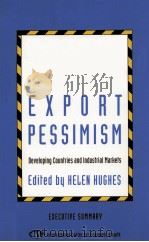《EXTRATERRITORIAL APPLICATION OF EXPORT CONTROL LEGISLATION CANADA AND THE U.S.A.》
| 作者 | A.L.C.DE MESTRAL AND T.GRUCHAL 编者 |
|---|---|
| 出版 | MARTINUS NIJHOFF PUBLISHERS |
| 参考页数 | 276 |
| 出版时间 | 1990(求助前请核对) 目录预览 |
| ISBN号 | 0792305264 — 求助条款 |
| PDF编号 | 813694708(仅供预览,未存储实际文件) |
| 求助格式 | 扫描PDF(若分多册发行,每次仅能受理1册) |
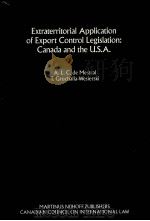
Ⅰ. INTRODUCTION1
A. Focus of the Book1
B. Purpose of the Book2
C. Research Method2
D. Analytical Difficulties3
E. Significance of the Historical Record4
F. Why Exercise Extraterritorial Jurisdiction?6
G. Techniques of Extraterritorial Extension of Export Controls7
H. Justifications Given for Extraterritorial Export Controls8
I. Assessment of the Canadian Record in Light of the Rules of Public International Law9
Ⅱ. GENERAL RULES OF PUBLIC INTERNATIONAL LAW13
A. General Rules or Principles of International Law that Permit or Limit Export Controls with Extraterritorial Effect13
1. Introduction13
2. The Modern Debate, its Origins and Manifestations16
3. Doctrinal Analysis17
4. Legitimate State Objects or Interests18
5. Resolution of Conflicts - The Third Restatement27
6. Classification of Export Control Laws in International Law29
7. Extraterritorial Jurisdiction of States and Conflicts of Prescriptive Jurisdiction as a Result of Export Control Laws32
B. International Agreements, Arrangements and Understandings44
1. The General Agreement on Tariffs and Trade (GATT)44
2. CoCom49
3. TheO.E.C.D.52
4. Other Multilateral Conventions53
C. Conclusions55
Ⅲ. DOMESTIC LEGISLATION67
A. Canada67
1. Federal Legislative Action: Export and Import Permits Acts and Predecessors67
B. U.S.76
1. Brief History of Laws, Regulations and Administration of Export Controls76
2. Contractual Stipulations and other Methods to Effect Export Controls81
Ⅳ. CANADA/U.S. BILATERAL AGREEMENTS, ARRANGEMENTS AND UNDERSTANDINGS93
A. 1940-194793
B. 1947-195796
C. 1957-196798
D. 1967-1975101
E. 1975-1981104
F. 1981-1988106
G. Adoption of the Foreign Extraterritorial Measures Act113
H. Recent Developments: The Pattern of Consultation116
I. Conclusions119
Ⅴ. STATE PRACTICE - CANADA129
A. Participation in International Action129
1. U.N. Sanctions129
2. Internationally Coordinated Sanctions142
B. Reaction to International Action in which Canada Did Not Participate151
1. Arab Boycott of Israel151
C. Reaction to Unilateral U.S. Legislation or Practice Having Extraterritorial Effect155
1. China, North Korea155
2. Cuba161
3. Uganda170
4. Libya170
5. Nicaragua171
Ⅵ. STATE PRACTICE - U.S.191
A. Participation in International Action191
1. U.N. Sanctions191
2. Internationally Coordinated Sanctions198
B. Reaction to International Action in which the U.S. Did Not Participate205
1. Arab Boycott of Israel205
C. Unilateral Action, Legislation or Practices Having Extraterritorial Effect208
1. China, North Korea208
2. Cuba211
3. Uganda215
4. Libya216
5. Nicaragua217
Ⅶ. EUROPEAN STATE PRACTICE233
A. France233
B. Federal Republic of Germany235
C. Belgium237
D. Switzerland238
E. The Netherlands239
F. The European Economic Communities241
Ⅷ. CONCLUSIONS249
A. General Considerations249
B. Relevance of Legal Categories253
C. What is the U.S. Position?255
D. What is the Canadian Position?257
E. Has Canada Compromised its Sovereignty?260
F. Is it Possible to Define an International Rule?263
1. Forms of Extraterritorial Application which Appear Difficult to Justify263
2. Is the Extraterritorial Application of Export Control Laws Entirely Unjustified?266
3. The Rule Today268
Index271
1990《EXTRATERRITORIAL APPLICATION OF EXPORT CONTROL LEGISLATION CANADA AND THE U.S.A.》由于是年代较久的资料都绝版了,几乎不可能购买到实物。如果大家为了学习确实需要,可向博主求助其电子版PDF文件(由A.L.C.DE MESTRAL AND T.GRUCHAL 1990 MARTINUS NIJHOFF PUBLISHERS 出版的版本) 。对合法合规的求助,我会当即受理并将下载地址发送给你。
高度相关资料
-
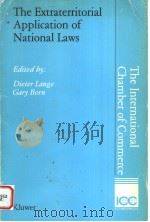
- THE EXTRATERRITORIAL APPLICATION OF NATIONAL LAWS
- 1987 KLUWER LAW AND TAXATION PUBLISHERS
-

- Fundamentals of the Chemistry and Application of Dyes
- WILEY-INTERSCIENCE
-
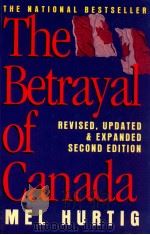
- THE BETRAYAL OF CANADA
- 1992 MEL HURTING
-

- The slices of the U.S.A
- 1998.01 バックアップ·パブリッシング
-

- THE DIGNITY OF LEGISLATION
- 1999 CAMBRIDGE UNIVERSITY PRESS
-
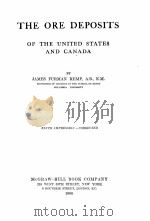
- THE ORE DEPOSITS OF THE UNITED STATES AND CANADA
- 1906 MCGRAW-HILL BOOK COMPANY
-

- THE THEORY OF LEGISLATION
- 1979 N.M.TRIPATHI PRIVATE LIMITED
-

- BEHIND THE SUCCESS AND FAILURE OF U.S. EXPORT INTERMEDIARIES
- 1998 QUORUM BOOKS
-

- THE CLAVARIAS OF THE UNITED STATES AND CANADA
- 1923 THE UNIVERSITY OF NORTH CAROLINA PRESS
-
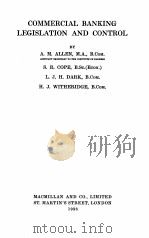
- COMMERCIAL BANKING LEGISLATION AND CONTROL
- 1938 MACMILLAN AND CO.
-
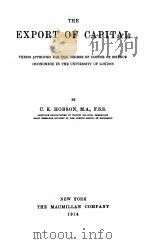
- THE EXPORT OF CAPITAL
- 1914 THE MACMILLAN COMPANY
-

- THE PRESINDENT, CONGRESS AND LEGISLATION
- 1946 COLUMBIA UNIVERSITY PRESS
提示:百度云已更名为百度网盘(百度盘),天翼云盘、微盘下载地址……暂未提供。➥ PDF文字可复制化或转WORD


